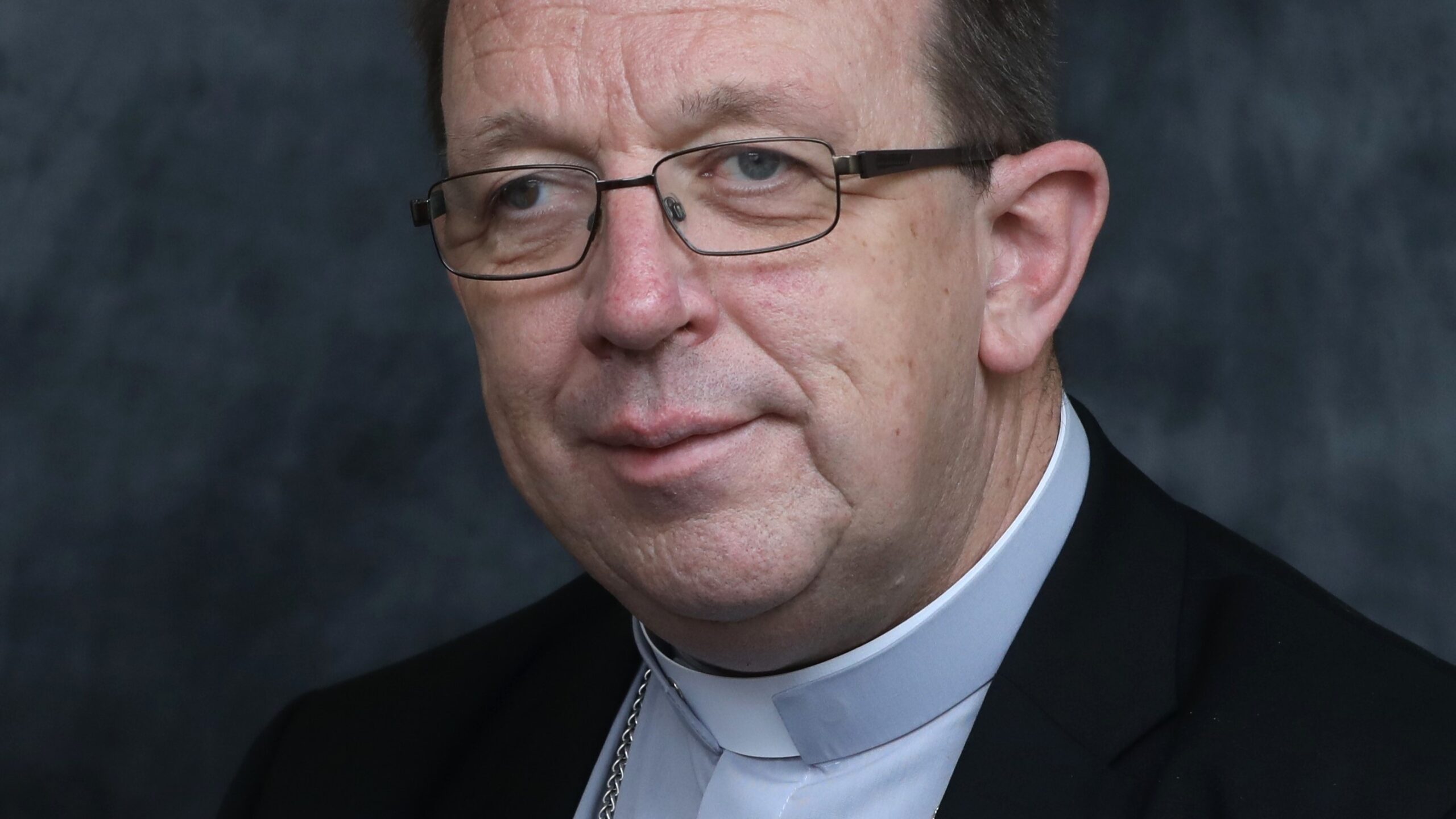On Sunday, 9 February, Bishop Tom Deenihan, Bishop of Meath, delivered an address at the Embassy of Ireland to the Holy See to mark the Jubilee of Military Personnel in Rome, and the Cause for Canonisation of Father Willie Doyle SJ.
Bishop Deenihan opened Father Doyle’s the Cause in Christ the King Cathedral, Mullingar, in November 2022. Father Doyle was an Irish Jesuit who served as a chaplain to the Royal Dublin Fusiliers and died while ministering on the battlefield in 1917, during World War
One.
Bishop Deenihan said, “May I begin by thanking Her Excellency, Frances Collins, the Irish Ambassador to the Holy See and His Excellency, Chris Trott, the British Ambassador to the Holy See, for hosting this event and for their kind invitation. The joint approach by both Ambassadors is a fitting tribute to the man who is the subject matter of our gathering this afternoon, and is also a reflection on the history of both our countries which has links and intersections which go beyond and defy popular narratives and types.
“Despite our rather dated and exaggerated title of the Isle of Saints and Scholars, we have no great number of canonised saints. Saint Oliver Plunkett, Archbishop of Armagh and the last of the Tyburn martyrs was second last, born 400 years ago this year in the Diocese of Meath and canonised here in Rome fifty years ago this year. Saint Charles of Mount Argus was the most recent but only four or five have been through the formal canonisation process.
“Rev Professor Vincent Twomey, in his book The end of Irish Catholicism, expressed the view that Irish Catholicism was more impacted by the Reformation than we care to imagine. The cult, feast days and scarcity of Causes for the canonisation of Saints are, perhaps, a manifestation of that. The Europeans celebrate better! Hopefully, with the Cause of the Servant of God, Father Willie Doyle, and, indeed, Sister Clare Crokett, whose cause was opened last month, that will change.
“It is remarkable that such a gathering would be hosted one hundred and eight years after Doyle’s death by both the Irish and British Ambassadors to the Holy See. There is a certain unity to this celebration which transcends nationality, politics, popular perception and creed. That is as it should be and it is very much appreciated.
“Doyle himself would have seen, I think, an appropriateness given that he was conscious of the need for everyone, the baptized, the professed and the ordained, to work for the Kingdom of God. Indeed, during his noviciate in Meath Diocese, he signed an oath offering his life. Interestingly, it was signed in his own blood and is now one of the very few first class relics of Doyle, given that his body was not recovered from the battlefield.
“Doyle was a man of intense spirituality which saw him, as well as risking and sacrificing his own life, as a spiritual director encouraging many towards priesthood and religious life. That latter aspect is important too. Many of the writings that he has left behind relate to Retreats and Spiritual Conferences that he gave in convents and monasteries throughout the island of Ireland. He was well known at the time.
“Pope Francis talks of the Church being a ‘Field Hospital’, it is an image that is appropriate here. Indeed, we are told that Doyle was nominated for the Victoria Cross for bravery but it was not granted due to him being, as an article in The Irish Times put it a while ago, suffering from the three disadvantages of being: a Catholic, a Priest and, dare I say it, a Jesuit! He was awarded the Military Cross for bravery in 1916.”
For Bishop Deenihan’s full address please click here


